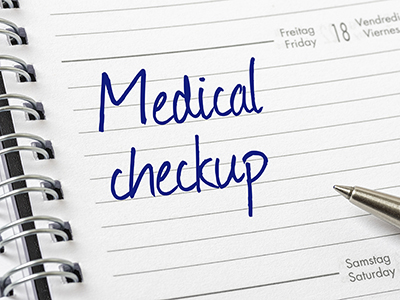HOW TO MAKE A DOCTOR APPOINTMENT
 When calling a new doctor or medical practice, you should make sure you have some key information. You may be able to get some of it from your insurance physician directory, your new doctor’s receptionist or the practice’s website. It may take several efforts to get all the information you need, but it will pay off when you need it most. Keep this information handy with your personal health records or household files.
When calling a new doctor or medical practice, you should make sure you have some key information. You may be able to get some of it from your insurance physician directory, your new doctor’s receptionist or the practice’s website. It may take several efforts to get all the information you need, but it will pay off when you need it most. Keep this information handy with your personal health records or household files.
- Office contact information: Obtain phone and fax numbers, office hours, web address, e-mail policy and hours of operation.
- Office location: Get the address and find directions by car or public transit. Find out about parking options, including whether and how much you have to pay to park.
- Making appointments: What are the hours to call for appointments? Are there no-show policies? Can they provide estimates of waiting times (both for an appointment and when waiting to see the doctor after arriving)?
- Medical record: Ask about any instructions for bringing a summary of your medical history, current health status and recent test results or if referral documentation is needed (especially important for specialists and testing).
- Special needs: Inquire if and how the provider can accommodate any unique or special needs (such as physical navigation, hearing or visual impairments, translation services, etc.) and how to arrange for assistance if needed.
- Payment: Inquire about the health insurance documentation and/or payment process required for receiving care. Get the contact information for staff administrator or the billing manager.
- Tests and test results: Request a description of what types of tests are commonly conducted in the practice and what tests will need to be done by an external provider (with names and contact numbers for commonly used laboratories and radiology facilities). Find out the practice policy about patient notification of test results.
- After-hours and emergency care: Inquire about when to seek, who to call and where to go for after-hours and emergency care.
- Prescriptions: Obtain instructions for securing prescription refills, reporting adverse side effects and decisions to discontinue medication or change any agreed-upon treatment plans.
- Care companion: Notify your physician group if you would like to bring a companion along with you to visits.
Resources reviewed June 2013
